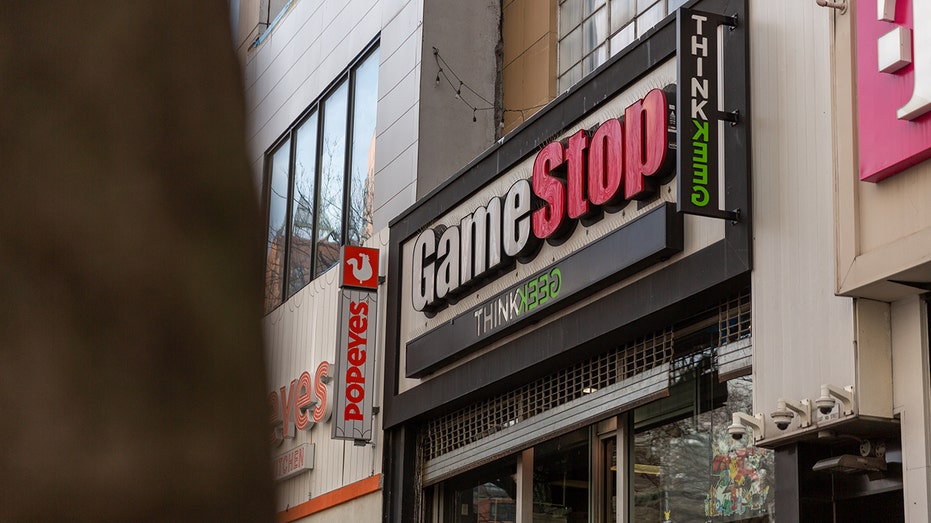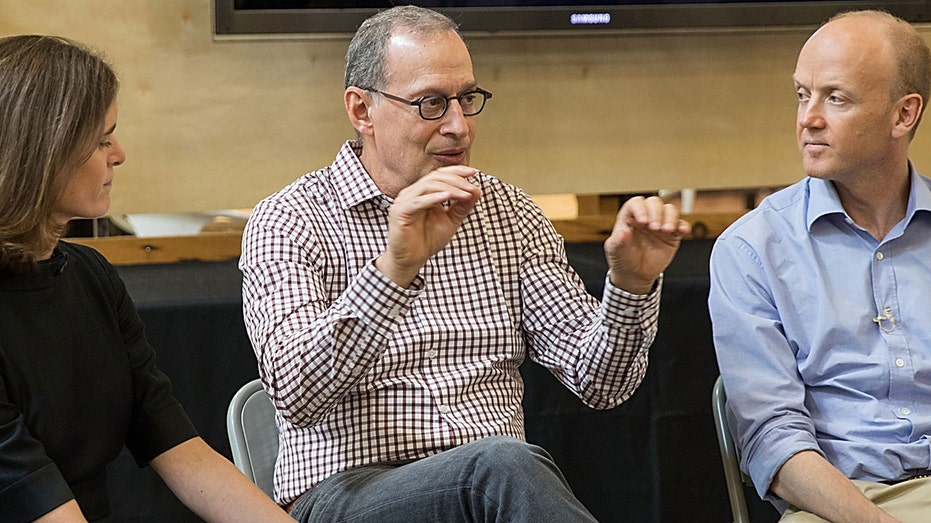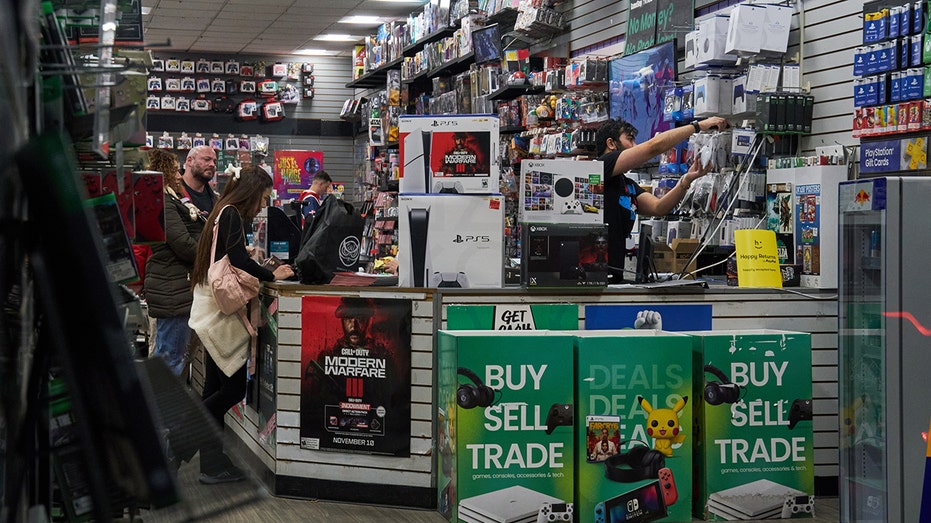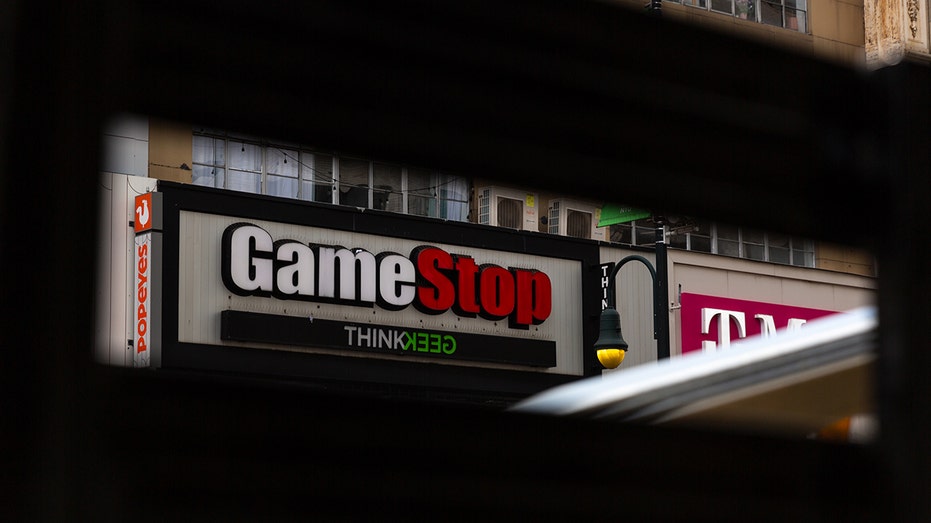Will GameStop survive? Here's what its co-founder says
Wedbush Securities analyst Michael Pachter says best path forward is to sell
Can GameStop survive?
GameStop co-founder Gary Kusin explains what CEO Ryan Cohen needs to do to clean up shop and turn around the company.
GameStop has faced an onslaught of challenges in recent years, given the rapidly evolving gaming industry landscape.
Co-founder Gary Kusin, who has watched the company navigate turbulent times, including the infamous 2021 short squeeze orchestrated by Reddit users (it sent the stock soaring temporarily), says the company needs to cut its footprint until it can find a profitable path forward.
CEO Ryan Cohen has "got to reduce the footprint of stores," said Kusin, who has a track record of building businesses in the retail space from GameStop to Laura Mercier.
Kusin co-founded the video game retailer Babbage's in the 1980s, which now operates as GameStop. He stepped down in 1995.
GAMESTOP, AMC MEME REVOLUTION: 1 YEAR SINCE RETAIL INVESTORS TOOK STOCKS ON WILD RIDE

A GameStop store is seen in New York on March 4, 2024. (Shelby Knowles / Bloomberg / Getty Images)
Kusin said the company could stand to shutter about 90% of the stores that come up for lease renewal every year.
This will "reduce the requirement to maintain staff and all the things they have to do for those locations until they can figure out some categories that will put enough revenue through the four walls that they can pay the overhead, the rent, the people to be there and generate a return on investment," Kusin said.
The company's original business model was geared toward selling physical games. It couldn't compete as digital downloads and online gaming platforms exploded. It has struggled to adapt and announced an unspecified number of layoffs to reduce costs and improve efficiency after taking a financial hit in the fourth quarter, according to a regulatory filing.

From left, GLG Social Impact Director Jen Field, former CEO and president of FedEx Kinkos and TreeHouse board member Gary Kusin, and GLG CEO Alexander Saint-Amand attend TreeHouse Hosts GLG Social Impact Fellows in Austin, Texas, on Oct. 17, 2017. (Rick Kern / GLG / Getty Images)
Kusin said the company has "tried a bunch of things and none of them have worked" and noted that its massive storefront is partly to blame, saying that "nothing works in a 10,000-store footprint, unless it's a historically enormous sector."
The best thing to do is reduce "the impact of that large footprint" and experiment.
The situation GameStop is currently facing is not all that different from Blockbuster, whose outdated business model failed to compete with the rise of streaming services, according to Kusin.

Shoppers and workers are shown inside a GameStop store in New York City on Dec. 2, 2023. (Bing Guan / Bloomberg / Getty Images)
LINKEDIN REPORTEDLY CONSIDERING ADDING GAMING TO ITS REPERTOIRE
But while Blockbuster had "nowhere to go," he said GameStop could have an advantage: used video games.
"There will be a very long tail on the used end of that business for people in lower economic stratas who love video games but can't afford either the bandwidth or the massive multiplayer or everything they need to be set up," said Kusin, who detailed his career in the upcoming book, "Always Learning: Lessons on Leveling Up, from GameStop to Laura Mercier and Beyond."
He added that the "used market still has legs."
| Ticker | Security | Last | Change | Change % |
|---|---|---|---|---|
| GME | GAMESTOP CORP. | 24.99 | +0.33 | +1.34% |
But while Wedbush Securities analyst Michael Pachter agreed with Kusin that GameStop should shrink its physical footprint, he argued that the best path forward is to shut down and sell the brand.

A GameStop store is seen in New York on March 4, 2024. (Shelby Knowles / Bloomberg / Getty Images)
"There is not an intelligent investor alive who owns GameStop," Pachter said.
He argued that the company could have leaned into the used market 10 years ago because publishers who sell games today prefer digital downloads.
GET FOX BUSINESS ON THE GO BY CLICKING HERE
"The point is that as games get more digital, there's less physical [games] available to trade in," he said. "The percentage that grows digital is the percentage [that] shrinks physical."
Hardcore gamers who trade in every game will keep buying a physical product. The issue is that used revenue is directly correlated to new physical game sales.
"Physical sales aren't going to ever get better," Pachter said. "It's not going to ever stabilize. It will continue to decline. And the reason it will continue to decline is we have a whole generation of kids growing up who have never seen a physical copy of the game."





















